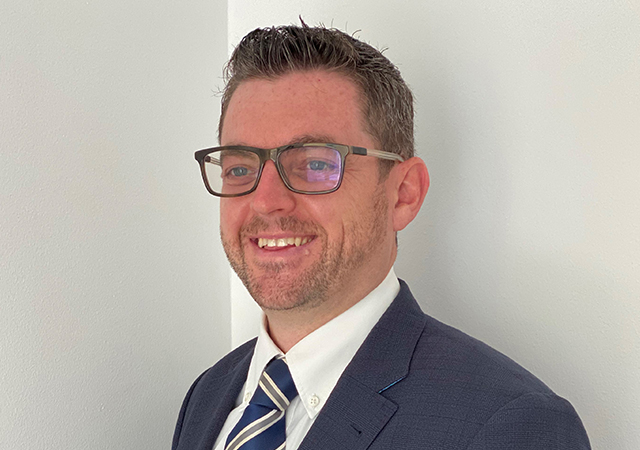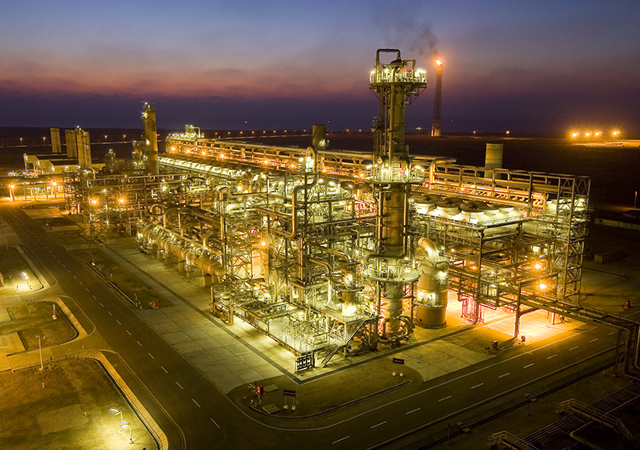Engineering, tech key to reducing emissions
KBR’s DR EUAN MCCULLOCH* delves into the crucial role of engineering and technology in building sustainable facilities such as power stations in the Gulf, highlighting how specific technologies like carbon capture and storage (CCS) can position the region as a leader in clean energy solutions.
01 March 2024
The Middle East, long a powerhouse for fossil fuels, is embarking on a bold transition to clean energy, aiming to decarbonise its industries while meeting rising global demand for power. In line with these efforts, the region’s emissions, primarily from power generation, can be tackled effectively, albeit at a cost.
The need for sustainable industrial facilities is more pressing than ever and the real challenge lies in achieving decarbonisation while simultaneously meeting the growing global demand for energy.
Low-carbon technologies and renewables, including hydrogen, are crucial for the Middle East’s energy transition. Saudi Arabia, the UAE, Oman and Qatar lead the charge, setting ambitious net-zero targets. Cutting-edge power stations with CCS are becoming cornerstones.
Saudi Arabia’s 2060 net-zero goal, with CO2 capture across its diverse emissions sources, sets an efficiency precedent in carbon management. The UAE’s 2050 target sees ambitious projects like Hail and Ghasha contributing significantly to CO2 capture and storage. This aligns with Adnoc’s 2045 net-zero goal and the country’s broader renewable push. Oman, aiming for net-zero by 2050, is actively integrating renewables and CCS into its Nationally Determined Contribution (NDC). Qatar’s involvement in regional CCS initiatives further cements the collective effort towards sustainable energy solutions, with many countries in the region including CCS as a key component in their NDCs.
From Ambition to Reality
The pace of global CO2 legislation, like the European Carbon Border Tax, demands detailed, asset-based engineering solutions. The tax poses a significant export hurdle for the Gulf region, making decarbonisation critical. Aligning ambitions with practical realities remains a challenge at both country and company levels. This gap between high-level commitments and on-the-ground action necessitates a more pragmatic, engineering- and technology-led approach from the outset.
 |
|
Dr Euan Mcculloch |
Through meticulous planning, strategic resource allocation, and effective implementation, we can bridge the gap between aspiration and practical solutions. This is achievable by effective communication of engineering and technology into company decision-making processes. An engineering and technology-led approach, involving actual emissions reporting and data modelling effectively surpasses traditional methods, often dominated by fiscal perspectives.
Navigating CCS
The energy transition’s challenges include the technical and economic feasibility of capturing emissions, especially from sources with lower CO2 purity. This necessitates strategic planning and investment to make CCS viable in diverse industrial contexts. Additionally, the absence of a unified carbon pricing mechanism in the region poses a challenge in creating economically viable models for CO2 plans. This calls for innovative approaches to find value in CO2, such as utilising it in enhanced oil recovery processes, or creating new supply chains.
Enhancing Decarbonisation
Building industrial facilities, including power stations with integrated CCS, is crucial for managing the region’s substantial CO2 emissions, especially from high-emitting industries. CCS implementation, as seen in the UAE, highlights a focus on reaching net-zero emissions. Similarly, Oman’s LNG projects demonstrate a shift towards cleaner fuels.
With its vast potential and zero-emission profile, hydrogen is set to play a key role in clean energy’s future.
Hydrogen projects mark a commitment to innovative, sustainable solutions. Moreover, end-to-end solutions, including the electrification of transportation, are essential for comprehensive decarbonisation strategies.
Leading by Example
For instance, KBR’s involvement in the construction of the world’s largest chemical complex in Saudi Arabia, Sadara in Jubail, showcases the region’s commitment to large-scale, sustainable infrastructure development. The Saudi Aramco-Dow Chemical Sadara project remains one of the most significant undertaking projects in the region. With 26 cutting-edge manufacturing plants with a capacity to produce three million tons annually, and a total investment of about $20 billion, Sadara is the world’s largest chemical complex ever built in one phase.
Additionally, KBR’s success in resolving flaring issues in Iraq and developing CCS strategies in the UAE demonstrates how technological innovation can tackle critical decarbonisation challenges.
Earlier this year, KBR’s ammonia technology was selected for a large-scale, one-million-tons per-annum low-carbon ammonia facility in the GCC region. Under the terms of the contract, KBR will provide the technology licence, basic engineering design, proprietary equipment, and catalyst for the low-carbon ammonia plant. The project reinforces the region’s focus to emerge as a leader in low-carbon fuels by capitalising on ammonia as a vector for clean hydrogen.
The Road Ahead
The Middle East’s journey towards decarbonisation and building sustainable industrial facilities is challenging, but offers an opportunity to redefine the region’s energy narrative. By prioritising engineering and technology in the construction of industrial facilities, the region can not only meet its ambitious goals but also emerge as a leader in the global energy transition.
The region’s construction sector is playing a pivotal role in the clean energy transition. By building sustainable industrial facilities, particularly power stations with advanced technologies, the region is taking concrete steps towards a cleaner future.
* Dr Euan McCulloch is Director of Operations – Middle East Integrated Solutions International at KBR, which provides a variety of solutions worldwide, from science and technology to sustainability and engineering.



